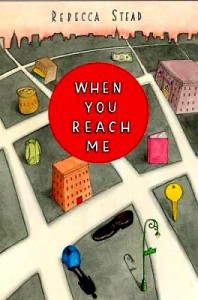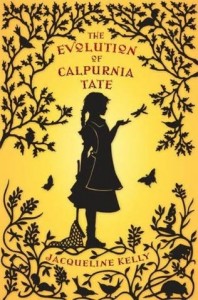Writing about Reading, and Why I Can’t Always (and Yet Always Want To)
Why, I wonder, am I so compelled to write about my reading life? I suppose it has something to do with memory, with holding on to things (we recall best those things which we have narrated, as Charlotte Mason was astute enough to recognize), and also with the way putting thoughts into words, written words, shifts vague and swirling impressions to coherent observations, connections, understanding.
Then, too, the urge to talk (write) about books springs also from booklover’s enthusiasm: when I’ve enjoyed something, or even just parts of something, I am eager, eager, eager to share. This creates all sorts of readerly, writerly dilemmas for me: sometimes I start conversations that I can’t squeeze out time to finish (though, in my mind, they are never finished, never closed; and I’m always figuring I’ll have a chance to chime in at some point). Sometimes I want to talk about books that I mostly loved, but I had this one quibble with a plot point, or I thought the ending was weak, or the first-person narrative voice was an unfortunate choice, or—well, any critical observations at all, and if the author is a living person, I find myself completely paralyzed at the prospect of putting my criticism in print. (Which is why, of course, I’m not a book reviewer by trade.)
 Then, of course, there’s the spoiler problem, over which I’ve sweated here before. For example, I want to tell you all about how much I enjoyed Rebecca Stead’s excellent middle-grade novel, When You Reach Me—but if I say anything, practically anything at all, I’ll give away things I’d rather you discovered yourself in the pages of the book, in the perfect way Stead has chosen to reveal them to you. I can say that it’s about a girl who reads A Wrinkle in Time repeatedly, constantly; that her best friend, a boy, abruptly withdraws from her; that her mother is a single, working mom hoping for a chance to shine on $20,000 Pyramid; that it’s 1979; that there’s a mystery; that there are characters I will never forget, completely fresh, completely believable; that I haven’t read a novel that nails the flavor of New York City so perfectly since, gosh, Harriet the Spy. But none of that tells you what I loved most about the book, or what makes it sing, or why I won’t soon forget it. I can’t tell you those things until you’ve read it—and then you won’t need me to, because you’ll know too.
Then, of course, there’s the spoiler problem, over which I’ve sweated here before. For example, I want to tell you all about how much I enjoyed Rebecca Stead’s excellent middle-grade novel, When You Reach Me—but if I say anything, practically anything at all, I’ll give away things I’d rather you discovered yourself in the pages of the book, in the perfect way Stead has chosen to reveal them to you. I can say that it’s about a girl who reads A Wrinkle in Time repeatedly, constantly; that her best friend, a boy, abruptly withdraws from her; that her mother is a single, working mom hoping for a chance to shine on $20,000 Pyramid; that it’s 1979; that there’s a mystery; that there are characters I will never forget, completely fresh, completely believable; that I haven’t read a novel that nails the flavor of New York City so perfectly since, gosh, Harriet the Spy. But none of that tells you what I loved most about the book, or what makes it sing, or why I won’t soon forget it. I can’t tell you those things until you’ve read it—and then you won’t need me to, because you’ll know too.
 Or how about The Evolution of Calpurnia Tate by Jacqueline Kelly? I loved it: this funny, tangy tale of an eleven-year-old girl, surrounded by brothers on a Texas pecan farm in 1899, with a mother yearning for a girly-girl, a fascination with the critters whose doings she records in her very important notebook, and an aloof, bewhiskered grandfather who has never, until now, seemed to notice her existence. I was delighted by the way Callie and her grandfather become acquainted with one another via their mutual interest in the natural world—he’s a correspondent of Charles Darwin and an amateur naturalist and scientist, ever on the lookout for a new species of flora or fauna that might add his name to the rolls of the distinguished discoverers of the day. At first he reacts to Callie rather as if she’s a curious new species herself, and the feeling is mutual. Slowly, they bond…oh, I loved it, the slow revelation of kindred spirits. And meanwhile, there are family antics, and wondrous new technology coming to town (a telephone! an automobile!), and Callie has to figure out how to carve out time for her burning interests when the womenfolk in her life demand piano practice and embroidery and cookery lessons. Certainly there have been many books tackling a girl’s struggles to define and defend her own identity as the people around her seem determined to squeeze her into a mold she isn’t sure fits—I’ve worked with that theme myself, in my Martha books—but I don’t think we’ve ever seen anyone quite like Miss Calpurnia Tate. It’s the setting, the context, that sold me on this book: I’d place it with The Great Brain and Ginger Pye on my mental bookshelf: episodic, comical, historically delicious novels full of eccentric and lovable characters, with that something extra that sets them apart from the crowd.
Or how about The Evolution of Calpurnia Tate by Jacqueline Kelly? I loved it: this funny, tangy tale of an eleven-year-old girl, surrounded by brothers on a Texas pecan farm in 1899, with a mother yearning for a girly-girl, a fascination with the critters whose doings she records in her very important notebook, and an aloof, bewhiskered grandfather who has never, until now, seemed to notice her existence. I was delighted by the way Callie and her grandfather become acquainted with one another via their mutual interest in the natural world—he’s a correspondent of Charles Darwin and an amateur naturalist and scientist, ever on the lookout for a new species of flora or fauna that might add his name to the rolls of the distinguished discoverers of the day. At first he reacts to Callie rather as if she’s a curious new species herself, and the feeling is mutual. Slowly, they bond…oh, I loved it, the slow revelation of kindred spirits. And meanwhile, there are family antics, and wondrous new technology coming to town (a telephone! an automobile!), and Callie has to figure out how to carve out time for her burning interests when the womenfolk in her life demand piano practice and embroidery and cookery lessons. Certainly there have been many books tackling a girl’s struggles to define and defend her own identity as the people around her seem determined to squeeze her into a mold she isn’t sure fits—I’ve worked with that theme myself, in my Martha books—but I don’t think we’ve ever seen anyone quite like Miss Calpurnia Tate. It’s the setting, the context, that sold me on this book: I’d place it with The Great Brain and Ginger Pye on my mental bookshelf: episodic, comical, historically delicious novels full of eccentric and lovable characters, with that something extra that sets them apart from the crowd.
And I’ve ten times written and deleted a sentence of criticism about one of these two novels, which my what-if-I-hurt-the-writer’s-feelings cowardice will not allow me to keep intact. How’s that for some obnoxious ambiguity?
